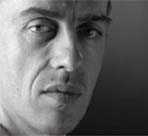
BAROQUE MASTERWORKS
Charpentier Anniversary Concert
Date:11 August
2004
Venue: The Chan Centre, Vancouver
Reviewer: June Heywood
 |
Hervé Niquet |
Hervé Niquet, a noted Marc-Antoine Charpentier scholar and conductor, has uncovered works by the composer that have never been published nor heard in public since the composer's death three hundred years ago.
Wednesday evening's performance was a celebration of the music of the man who is now considered the greatest French composer of the Baroque period.
The program began with a world premiere of Maestro Niquet's own beautiful new edition of Charpentier's Magnificat a 4 voix avec instruments. Although the conductor's movements were stiff and quirky at times, he led with authority. He mixed and melded layers of tone, harmony, and texture between the choir, musica intima, the Baroque Chamber Ensemble that incorporated musicians from Montreal, Toronto, and Vancouver, and the soloists - sopranos Theresa van der Hoeven and Dorothea Ventura; tenors Colin Ainsworth and Jean-Sebastien Allaire; and baritone Norman Richard.
It has been assumed that the Missa Assumpta es Maria was composed for a special occasion. Charpentier set the usual five sections - Kyrie, Gloria, Credo, Sanctus and Agnus Dei then added Domine, salvum fac regem, a prayer for Louis XIV's health. The soprano duet sung in the Kyrie was equally matched in volume and pacing by the voices and the recorders. The Gloria was a joyous tumble of voices and instruments. The cello and theorbo (a long-necked lute favoured in the 17th century) featured in the Credo gave a sense of solemnity, stateliness, and depth of religious belief in the rise and fall of the volume and elegant phrasing. A moving tenor duet was followed by a harmony of the sopranos and Mr Ainsworth who has an (almost counter-) tenor voice.
Charpentier's Te Deum sparked the revival of his music. It is not know for what occasion it was written but it sounds triumphal, processional, and militaristic with its clarion of trumpets, rousing, fast, galloping speed leading to a soft fading, then gaining volume to end on a spirited final chord.
The enthusiastic audience was granted an encore - Bar 6:13 - the music familiar to viewers of the Eurovision Song Contest. Then with warmth and grace Maestro Hervé Niquet acknowledged the choir, the musicians, and the soloists as he left the stage.
© 2004, June Heywood